Student Blog
Fieldwork
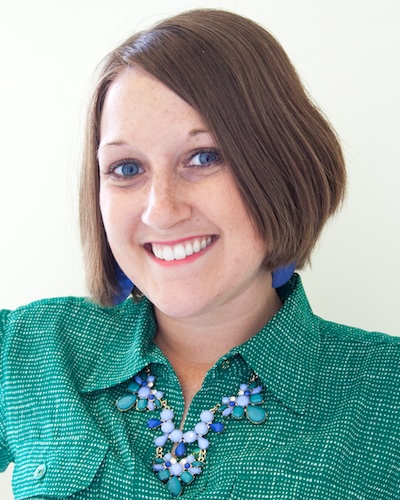
The Sky is the Limit! ⟩
April 17, 2015, by Kristy
Community Fieldwork Getting Involved What are OS/OT?
Recently, I had the opportunity to present at the Occupational Therapy Association of California Spring Symposium on time management strategies for adults with ADHD, specifically speaking to my development of an occupations-based group intervention. Not going to lie, I was a bit nervous speaking to a group of practicing occupational therapists about a program that I have worked so hard on for the last year. I was fearful for their opinion of it, their understanding of the material, and overall how the presentation would go. Even though I volunteered to present and share my work thus far, it is still a bit scary; but I’m here to tell you it went amazing! I couldn’t have asked for a better turn out or better experience for my first workshop! This really speaks to the Division’s capacity to prepare us not only as practitioners, but also has professional leaders and advocates for the field. In addition, attendees were so respectful and supportive of my ideas and my work. In which I could not have gotten to the point I am today without the support of the Division and the curriculum, and specifically Dr. Deborah Pitts who has served as my mentor for this project from the beginning. I’d like to share with you how this journey started and where we are headed in the future 😊
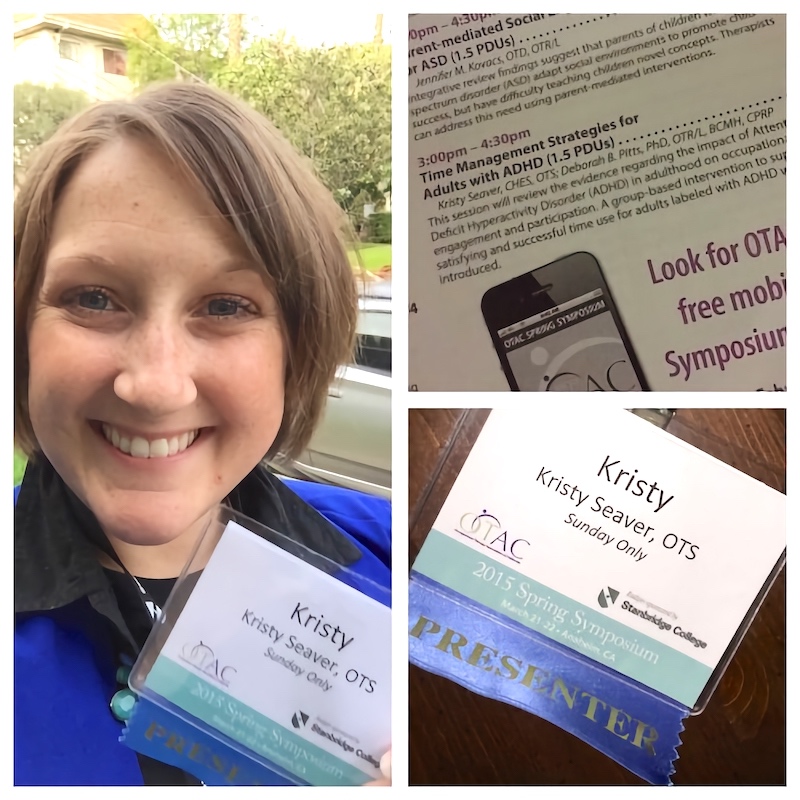
Me presenting at the OTAC Spring Symposium
Last May, I was about to begin my first Level II Fieldwork with Pacific Clinics, a community-based mental health center. My site preceptor shared with me that several of their members had a hard time managing their time and getting to appointments, these folks specifically also had a diagnosis of ADHD. I willingly took on the opportunity to see what was out there for these individuals. I then brought this to the attention of my faculty preceptor, and we began a literature review. From our searches, it came to our attention that there was limited interventions out there, specifically anything occupations-based. Therefore, we began the development of what turned into a group intervention, based in occupational perspectives, that facilitated organization and time use strategies for those with ADHD. As my fieldwork was coming to an end, Dr. Pitts suggested I continue the development and research on this intervention in my course, Occupation-Based Programs for the Community. Seeing the members success who experienced the intervention with me during my fieldwork, and acknowledging how much it resonated with them, served as motivation for me to continue on with the development. It reassured me that there was a need for this, and I needed to continue my pursuit. I spent the next 3-4 months doing lots and lots of background research on what interventions were out there, different evaluation tools, symptoms and occupational impairment for individuals with ADHD, and what solutions or data was helpful in facilitating occupational participation. By the end of the semester, I had a completely revised manual for the intervention, and boy was I excited! Then the question came again, what next? I still felt that there could be more. I could do more, I could make it better. I could use more evidence to support the intervention and process. Therefore, I enrolled in an Independent Study with Dr. Pitts, and I continued the revision of the facilitator manual and the participant manual. After another 2-3 months of work, I have finally shared my ideas with others and sought their feedback, not only at the Spring Symposium I recently spoke at, but also seeking critique from experts in the field. I anxiously await their responses and suggestions for the future with the intervention. At this point in time, I am not sure what is the next path to take for development. I know I am not ready to be done with it, I am hoping to seek publication on some level to be able to share with others. But who knows what the future will hold!
So why do I share this with you? I really want to encourage others that the sky is the limit! You can do anything you set your mind to! A year ago, I would have never thought I would be in the position I am in now, nor would I have told you I have such a passion for working with adults with ADHD. The reason I am where I am today is because of the Chan Division of Occupational Science and Occupational Therapy. The support of faculty, design of curriculum, and fieldwork experiences, have really impacted my future as a practitioner and as a leader in the field. They encourage you to push the envelope, don’t just settle for the minimum, go outside of the box and do something you didn’t think you could or even knew had it in you! Without USC OSOT, I wouldn’t be where I am today, and for that I am eternally grateful.
So I welcome you to the Trojan Family! You picked a good one to be a part of! Fight on!
⋯
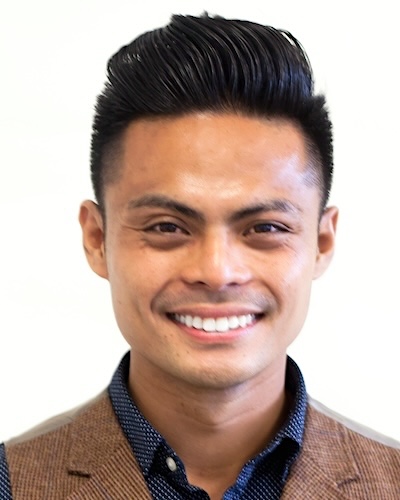
Say whattttt, that’s occupational therapy!? ⟩
February 3, 2015, by Jonathan
Fieldwork What are OS/OT?
It’s an age old question: what is occupational therapy? Funny enough, I ran across this on Facebook the other day:
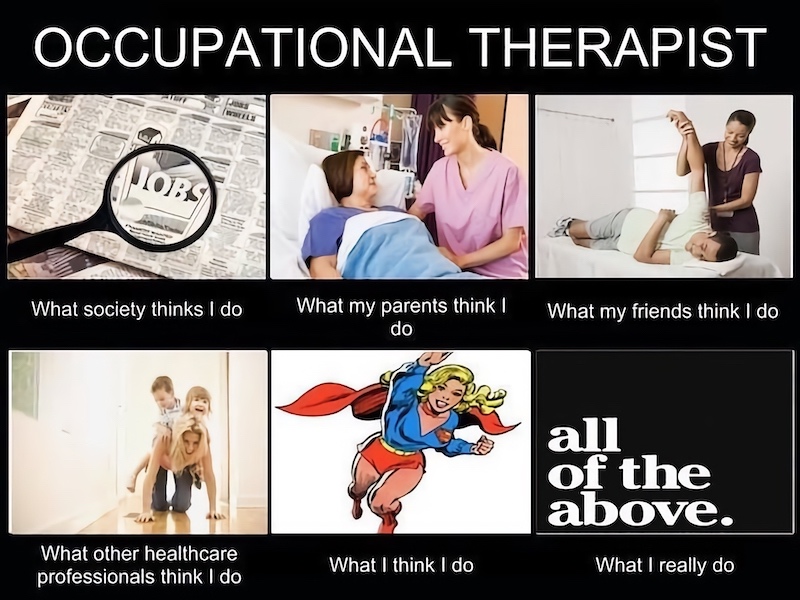
Point being, occupational therapy is a vast field with many faces. An occupational therapist can work with a variety of individuals across a number of diverse settings. With that said, I think it’s because of this reason that it’s a challenge to find an all-encompassing definition of exactly what it is that we do. In my own experiences, my definition of OT is constantly evolving the more I am exposed to the different things that an occupational therapist can do. Just to give you a better idea of the many hats that OTs can wear, I will talk about some of my own experiences regarding occupational therapy and the various outlets I’ve had the privilege of applying my passion towards.
My first level I fieldwork was at City of Hope. Oncology is an emerging field in occupational therapy, and this was something I’ve always wanted to explore because I’ve always had a passion for working with individuals who have cancer. Over at City of Hope, I was doing a number of different OT interventions, such as mirror therapy, ADL/IADL training, therapeutic exercise, and energy conservation techniques. I remember one of my patients was a Mother. I remember her telling me during our sessions together that it was not the cancer itself that was the most challenging aspect, it was more so her frustrations of feeling that she was not able to engage in the roles and occupations that were meaningful to her. Specifically, she felt like she could not be the Mother she wanted to be, and she could not live the active lifestyle she had desired, because she did not the same energy she once had to undertake these ventures. Thus, in her therapy sessions we would work on energy conservation techniques and we would find ways to build her activity tolerance, so that way she felt more connected to who she was while battling her cancer. The context of occupation engaged her in therapy, and I really enjoyed my time working with her. Here’s a picture of my favorite place at City of Hope, the Golter Gate.
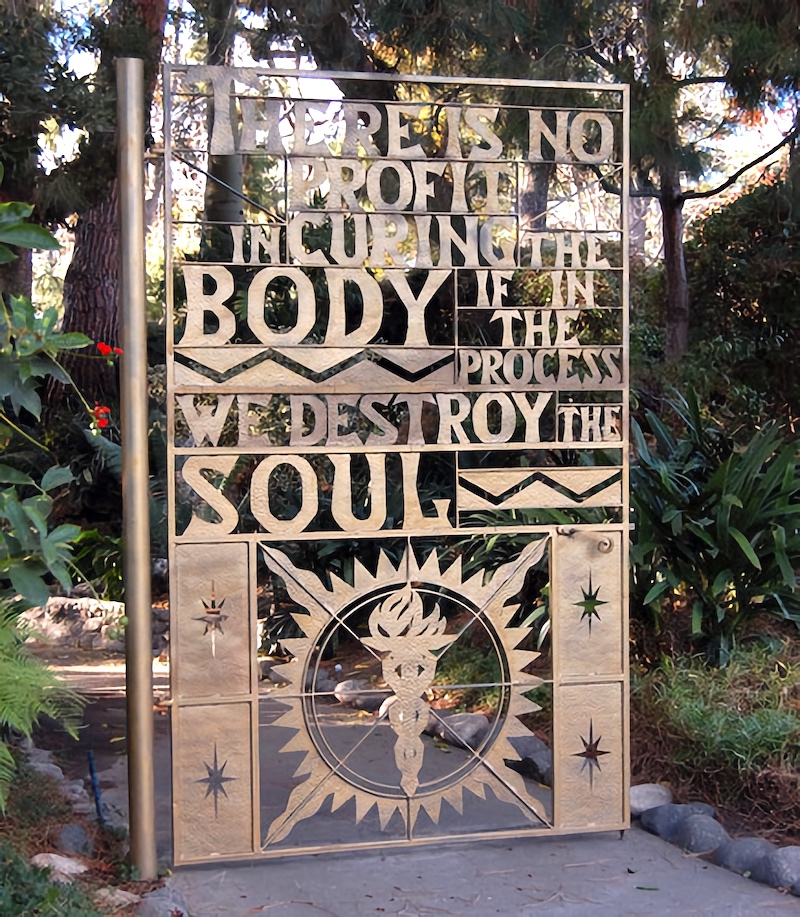
Golter Gate at City of Hope
My second level I fieldwork was at Project 180. It was over here that I was working with individuals who were incarcerated or who were at risk for incarceration. I remember watching a 30 days documentary by Morgan Spurlock, and he mentioned a statistic that 2 out of every 3 individuals who are incarcerated will be readmitted back into prison. Thus, Project 180 aims to help these individuals who are at risk for incarceration develop the skills that they need in order to successfully reintegrate into the community. The interventions I was doing consisted of a number of things, including helping an individual find a job, develop a skill set for maintaining a job, helping an individual reconnect to their family, and basically supporting these individuals to turn the chapter and recreate a new life story that they could be proud of. Here I am with my friend Amy, on our last day at Project 180.
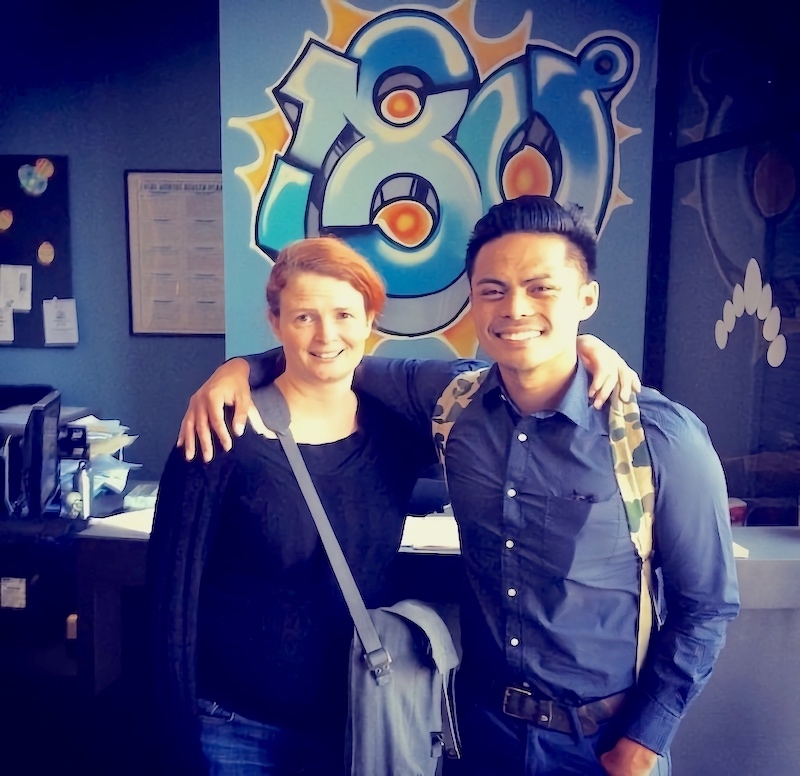
Project 180
I’ve mentioned my time at the Honolulu VA in my previous blogs. It was over here that I was able to work with the heroes who have served our country in inpatient, outpatient, and home based primary care settings. Over here, I was able to help veterans rehabilitate injuries utilizing the occupations that they loved to do. Last semester, I did my level I FW in Pediatrics at NJA therapy services, where I was helping children with special needs in both school based and outpatient settings. Over here, I was utilizing interventions such as fine motor exercises, sensory integration, and ADL training to help these children live a life to their fullest potential. This semester, I’m working with individuals who have multiple sclerosis utilizing a lifestyle redesign model. In doing so, I’m putting in my 100% effort to help my participants reach their meaningful goals, and am supporting these individuals to connect to the occupations that provide them meaning.
Based on my experiences, here is my definition of OT: we are a health profession that helps an individual reach their meaningful goals and fullest potential utilizing meaningful activity. This can be through prevention or rehabilitation, but ultimately we use the context of occupation to help an individual get to where they want to be. We look at a number of factors, including social/physical environment, support systems, personal strengths, and participation patterns, to help an individual overcome the challenges that prevent them from doing what they would like to do. We utilize our skill set to help the people we work with, and put forth our efforts to empower these individuals to live a life engaged in the occupations that give them meaning.
With that said, I pose this question to you: What’s your personal definition of OT? 😊
— Jonathan
⋯

Time Flies! ⟩
January 21, 2015, by Kristy
Classes Fieldwork Getting Involved
It seems as if I just started the program yesterday, but here we are in the final semester preparing for the comprehensive exam, graduation, fieldwork, and then the national board exam! Woah! But before I get to all that, first I get to enjoy my final semester as a Master’s student by taking electives! This is one of the unique things that USC has to offer because this is our chance to “specialize” within a “generalist” degree. What does that really mean? We get to pick additional coursework to take based on our interested area of practice, so we could “specialize” in pediatrics, wellness, rehabilitation, etc. One week in, I am very happy with the elective options I have chosen because it is really information that I want to know more about and find myself very engaged in the reading and can relate it to future practice.
But one course I am taking is actually a course I more or less made up myself! We are given the opportunity to complete an Independent Study or Independent Directed Research. I have mentioned in my previous blogs about a project I started last summer while I was in my Level II Fieldwork at a community based mental health wellness center. During my time there, the site identified a need for a group intervention for adults with ADHD. So I hit the ground running, researching different interventions that are currently out there and nothing seemed to fit just right, so I made my own. Throughout the summer, I spent time writing, rewriting, researching, reading, and presenting all the material I had found, and by the end I had the first draft of a facilitator and participant manual for a group intervention for Adults with ADHD on time management and organization skills. I would not have been so successful if it hadn’t been for the mentorship of the faculty at USC who guided me through the process and encouraged me to further develop the program during my fall course “Occupation-Centered Programs for the Community.” During this time, I revised the manual again and continued to research what was currently out there. I even had the opportunity to attend a conference by the Allen Cognitive Network where they highlighted some current interventions in time management. So this leads me to my independent study! I will continue the development and revisions of the manuals as well as be presenting at the Occupational Therapy Association of California (OTAC) Spring Symposium. I am so excited to pursue this opportunity and feel so lucky to have a program and Division that supports me in my interests and academic pursuits! Occupational therapy is a broad, diverse field that has many niches so there are constantly opportunities to pursue a passion of yours that you didn’t even know existed! Follow your passion. 😊
⋯
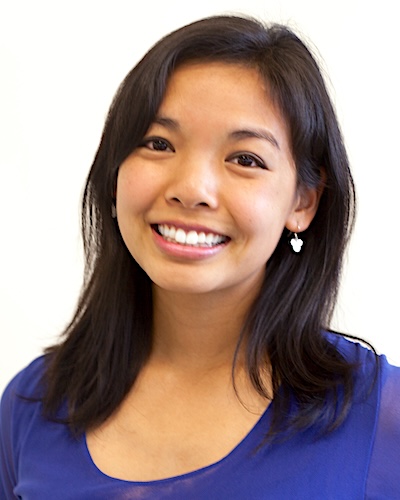
Finding the Occupation in Occupational Therapy! ⟩
December 8, 2014, by Claire
Classes Fieldwork What are OS/OT?
What makes an occupational therapist a good occupational therapist?
The past few weeks, I have been so inspired by all the different kinds of activities that an occupational therapist can do to help individuals improve their participation in daily life activities!
One of my favorite highlights of this semester was working with a patient at my Level I Fieldwork site. He was referred to occupational therapy after a motor-vehicle accident that broke his right arm and and left leg. When we first met him, we interviewed him using the Canadian Occupational Performance Measure and found out that he wants to get back to his hairdressing job! We also learned about his interest in cooking. During our treatment sessions, we would review some exercises in preparation for an occupation-based activity, which included making mashed potatoes (I learned his recipe — absolutely delicious. It’s all about adding a lot of butter) and braiding hair! As a Level I fieldwork student, our role includes observing the occupational therapists and also possibly participating in some of the treatment process. In this case, it meant that I volunteered my hair to be braided during the treatment session, and I also ended up receiving a free head massage! Besides all the laughter, our patient was able to practice standing for longer periods of time without crutches (important for one hair-cut session!) and using his muscles in ways that he would for doing someone’s hair. We learned a lot about both occupation-as-ends and occupation-as-means, and I felt like this treatment session really showed that. Our patient was participating in a purposeful activity which he was motivated about, but the occupational therapist was also analyzing his movement and problem-solving with the patient regarding challenges that he was facing while doing the activity. That’s super cool! I look forward to his recovery so that he can keep changing people’s lives — one hairstyle at a time.
Here’s a couple pictures of me with my new hair after the treatment session:
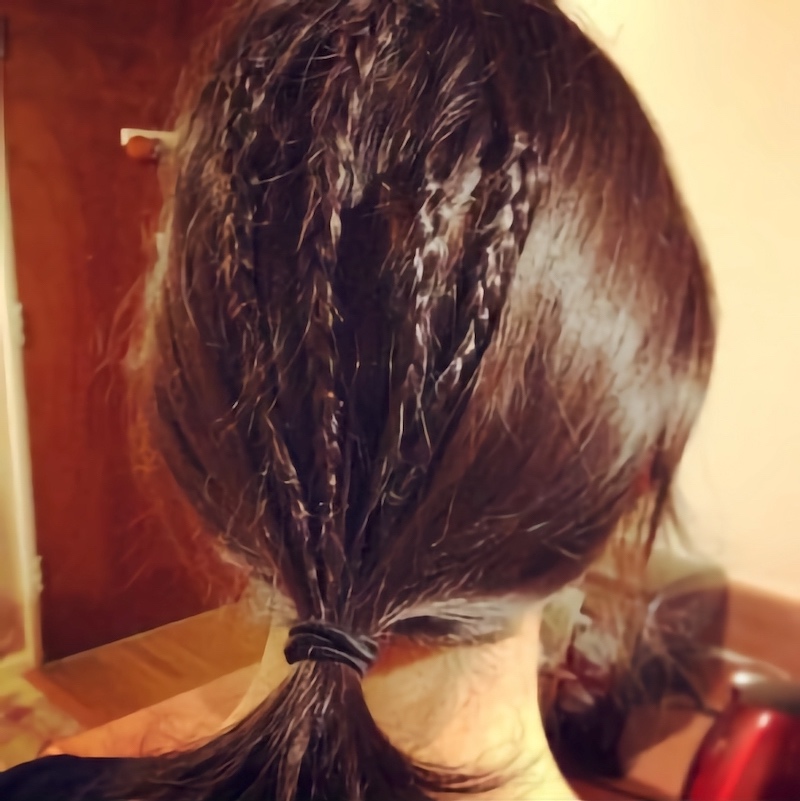
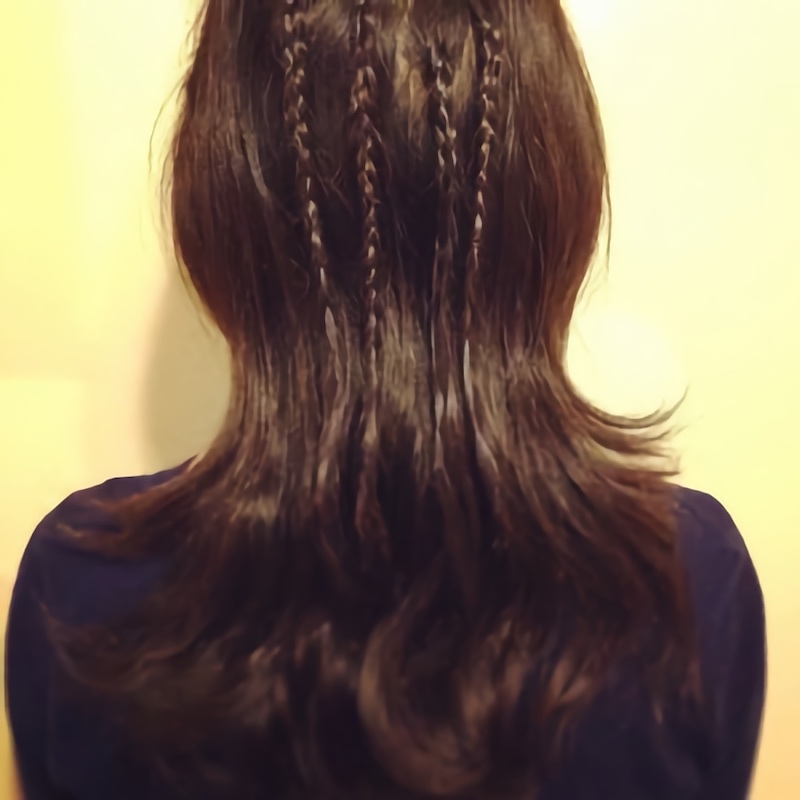
In class, we have been learning about developing treatment plans that help improve the daily functioning of our clients. We also looked at different kinds of adaptations that may be used in the kitchen. Here are some things that we did — a pie in time for Thanksgiving and a big brunch potluck in our occupations lab.
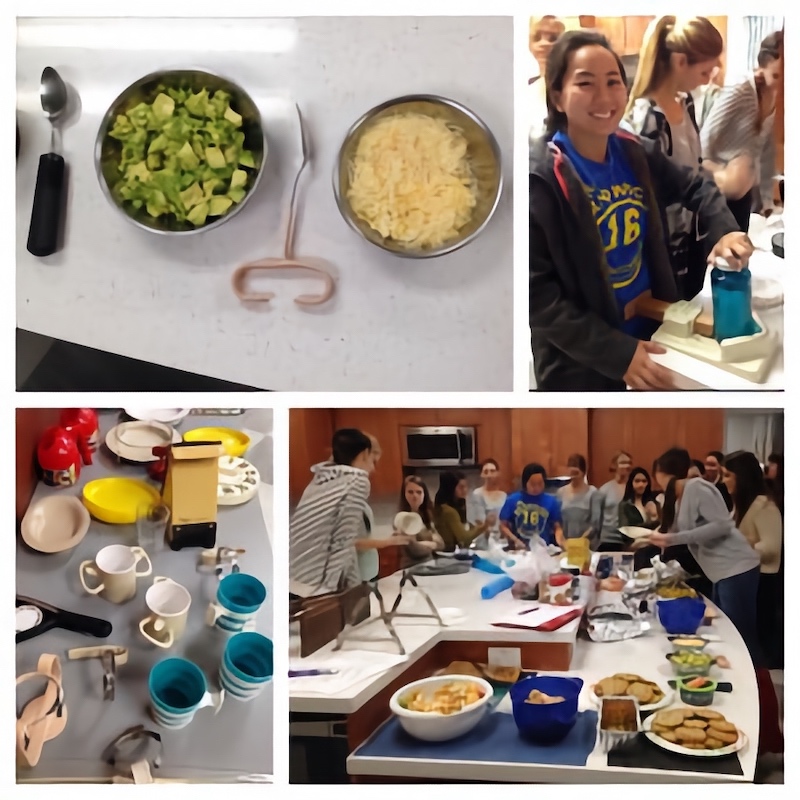
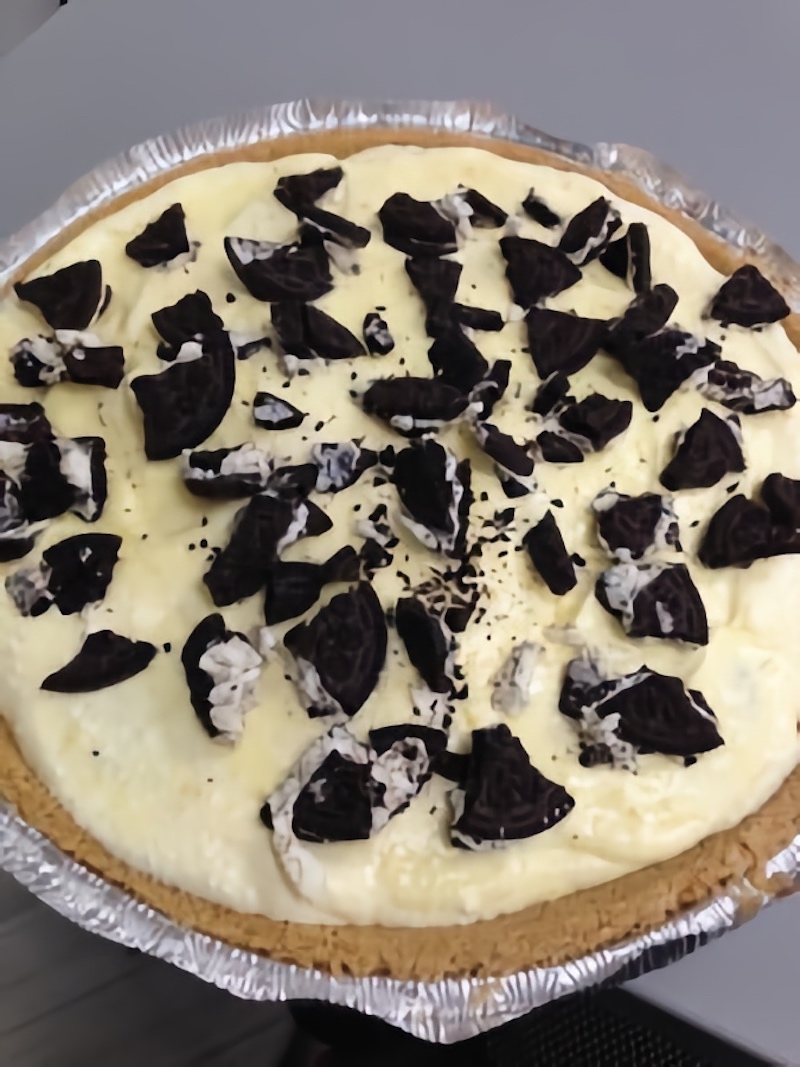
We are moving into our finals week — best of luck to all students, and I will update again soon!
⋯
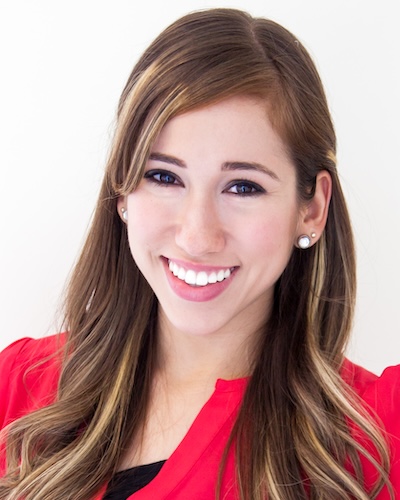
Flying Through Fall Semester ⟩
December 2, 2014, by Leila
Hi everyone! I hope that you’re all doing fantastic!
The fall semester is quickly coming to an end and time sure does fly by when you are having fun. I want to apologize for the lack of blog posts, but I promise I will be coming back with more! (As soon as finals are over 😊) I wanted to share a little bit about the current immersion that I am in. Currently, I’m in my pediatrics immersion and it has been an amazing experience. Before starting this immersion I had little experience working with children. I mean, I’ve tutored children before and I have younger cousins . . . does that count? 😊
So coming in I knew very little about the developmental stages, the variety of diagnoses seen, occupational therapy interventions, etc. Fast forward 12 weeks, and I’m feeling a lot more knowledgeable. Similar to my other immersions, my fieldwork experience has provided me with the opportunity to apply what I learn! It’s also great to see practicing occupational therapists in action. It’s really amazing what OTs advocate and more importantly what the children can do!
Two weeks ago in our pediatrics immersion we had the opportunity to come up with an adaptive device out of cardboard. Talk about being creative, but it’s okay because we are OTs! Afterwards, we had to present an infomercial in front of the class.
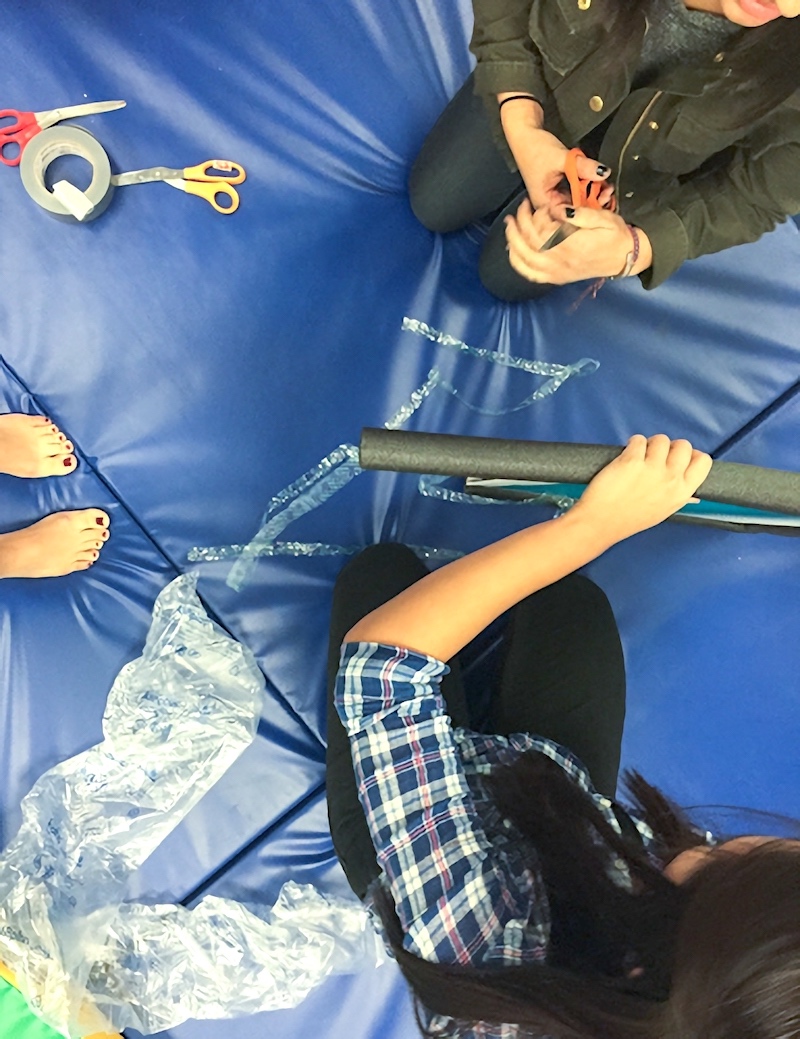
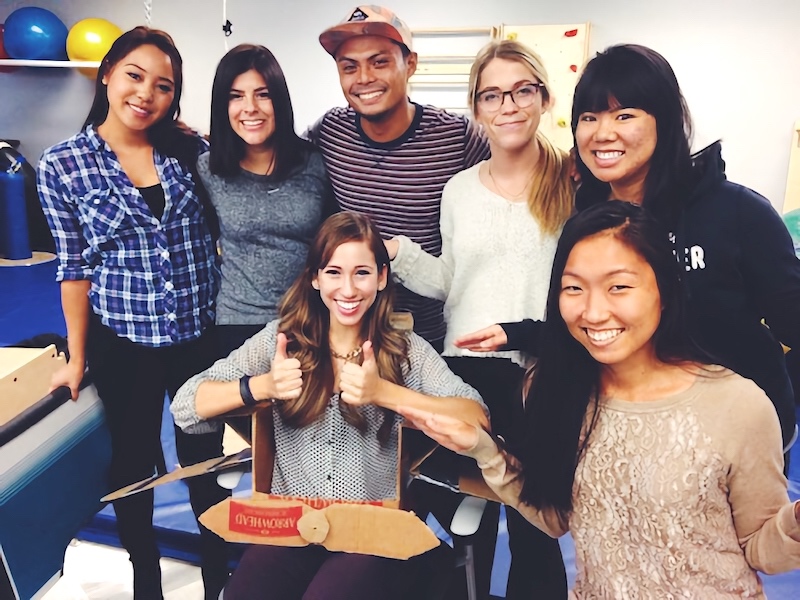
Check out the video below! Warning: Video contains some comic relief and puns.
⋯





